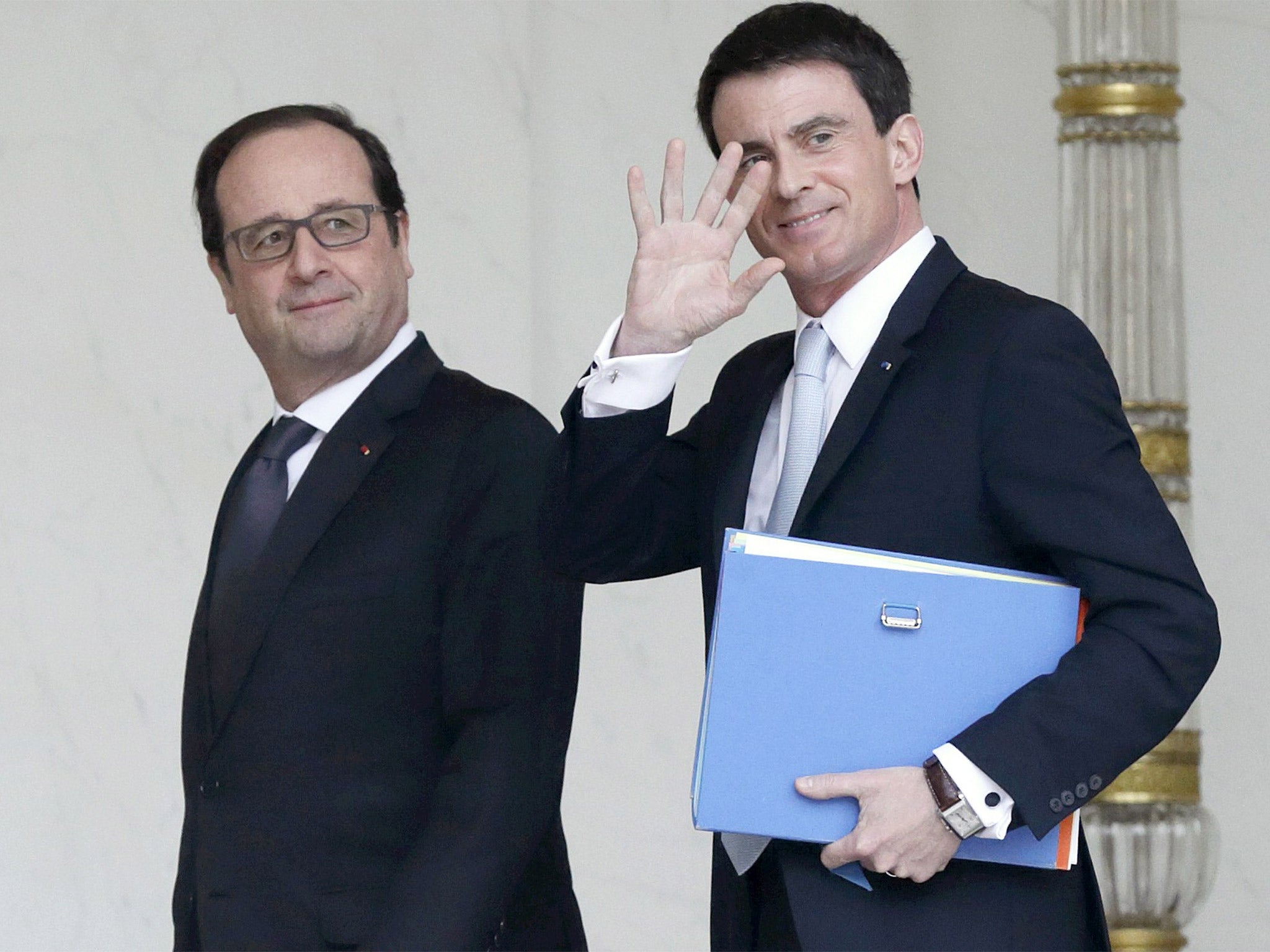Socialist revolt over France's economic reform programme leaves President Hollande facing an early parliamentary election
The government faces a hazardous vote of confidence after using special powers to ram through a modest attempt to stimulate competition and growth

Your support helps us to tell the story
From reproductive rights to climate change to Big Tech, The Independent is on the ground when the story is developing. Whether it's investigating the financials of Elon Musk's pro-Trump PAC or producing our latest documentary, 'The A Word', which shines a light on the American women fighting for reproductive rights, we know how important it is to parse out the facts from the messaging.
At such a critical moment in US history, we need reporters on the ground. Your donation allows us to keep sending journalists to speak to both sides of the story.
The Independent is trusted by Americans across the entire political spectrum. And unlike many other quality news outlets, we choose not to lock Americans out of our reporting and analysis with paywalls. We believe quality journalism should be available to everyone, paid for by those who can afford it.
Your support makes all the difference.President François Hollande’s economic reform programme is threatened by an outright rebellion by Socialist hard-liners in the national assembly.
The French government faces a hazardous vote of confidence in parliament tomorrow night after it resorted to special powers to ram through a modest attempt to stimulate competition and growth.
The Prime Minister, Manuel Valls, hopes to survive the vote, despite a revolt by around 30 left-wing Socialist deputies which has destroyed his fragile parliamentary majority.
If he loses, he would be obliged to resign, after which Mr Hollande would be expected – though not constitutionally obliged – to call a parliamentary election which would be calamitous for the left. For this reason, many of the Socialist rebels are likely to abstain or vote for a government they no longer support.
The crisis within the Socialist Party means that Mr Hollande will now struggle to impose the rest of his reform programme before the next presidential and parliamentary elections in 2017. The government can only use the emergency override clause once in every parliament (except for budget decisions). Future reforms are now hostage to the same rebels.
Five weeks after the jihadist attacks in Paris created a surge of national unity, French life is back to normal. Everyone wants to reform the economy, but there is no political consensus for any specific reforms, even those supported by 60 per cent of French people.
On Tuesday, the government realised it no longer had enough National Assembly votes to win the first reading of a sprawling bill that has become the symbol of its cautious drive to deregulate the economy. The law would, among other things, open up protected trades and professions, reduce restrictions on Sunday shopping and simplify employment disputes.
Most – not all – right-wing and centrist deputies opposed the law. Some complained it was too weak, even though it went beyond anything attempted by the ex-President Nicolas Sarkozy in his five years in power. Others wanted to protect the corporate interests of lawyers and notaries. A group of around 30 left-wing Socialist deputies made clear that they would vote against the law as they felt it was “anti-social and anti-Socialist”.
On Tuesday Mr Valls triggered – for the first time in almost a decade – an emergency power that entitles a government to impose one bill per parliamentary session without a vote in the National Assembly (lower house). The centre-right opposition then exercised its right to call a confidence vote within 48 hours.
When out of office, Mr Hollande had attacked earlier uses of override powers as “undemocratic” and an “admission of failure”. Today, he defended the decision as essential to preserve the momentum of his drive for market-friendly reform. “We could not afford to lose time or take risks,” he said.
Emmanuel Macron, 37, the Economics Minister who framed the law, poured scorn on the Socialist rebels. “The do-nothing left is worth nothing,” he said. “These people are thinking of the party congress in June, not the people.”
Centre-right politicians said that the resort to emergency powers proved the government no longer had a reliable majority. It is doubtful, however, whether Mr Sarkozy’s Union Pour un Mouvement Populaire (UMP) would relish an early election. Such a poll would be calamitous for the left but polls suggest it might also produce a breakthough for Marine Le Pen’s far-right Front National.
Join our commenting forum
Join thought-provoking conversations, follow other Independent readers and see their replies
Comments